What Is The Importance Of Communication Skills For Children?
Childhood is the stage of learning. Basically, this is the period when a person inherits most of their qualities, values, socialisation skills. You have to water a tiny plant in the primary stage. When it grows up, it will suck water by its roots. Likewise, teach your kids how to communicate well. They will grow up as intelligent humans. Besides, their manner will help them learn how to impact the people around them positively.
The importance of communication skills is immense for your children. It can help in the following ways-
- By effective communication skills, children express themselves clearly. It conveys their feelings in a better way.
- Communication skills for children can facilitate learning. Also, it exchanges meaningful information with other people, which is a must for socialisation.
- Active communicating may boost your kid’s IQ by helping him build healthy relationships during his social interactions with others.
- There is a chance that verbally communication may help the kids to comfortably develop written communication as well. Also, it is likely to help him do better academically.
- Kids suffering from communication problems may develop behavioural disorders. For example – depression, social withdrawal, and low self-esteem etc.
- Your children develop a distinct communication style by this time that is important to make a mark in the future.
How to Spot Communication Difficulties in your Children?
Detecting difficulties in communication is important. Even an infant as young as 0-7 months who doesn’t babble yet, may show signs of communication problems. Notice your children at every stage of growing up and spot if they are facing some problems to communicate.
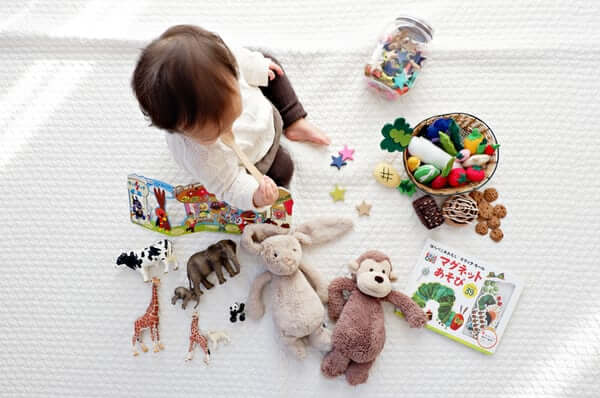
Here are a few ways to spot difficulties in communication. Your child may have communication difficulties if they are –
- Use immature language
- Deliver speeches that are difficult to understand
- Struggle to speak
- Can’t listen actively in conversation
- Avoid eye contact constantly
- Don’t understand others talk
- Don’t mix and play with other children
- Misbehave with other kids
If you detect two or more of these signs in your child, take proper initiatives and work on your kid’s social communication skills.
8 Activities and Games to Improve Communication Skills for Kids
For developing communication skills for children, you may play several types of games with them. And who doesn’t like games? Your children will learn with fun! Moreover, you’ll share a beautiful bonding experience with your kids.
You can bet your kids will remember these interactive moments even after they grow up! Besides, these games will not take too much time. Additionally, the skills you are teaching with fun games are foundational to future lessons. Let’s see a few of these activities and games you can play with your children-
1. What’s in the Box?
This is a fun game for kids. They can practice the power of description. This will help them to increase their power of thinking as they have to create an image of an object in their brain just by touching them. So, how to play this game? Cut a hole in a box. However, make sure the hole is large enough for their tiny hands.

Tell them that they’re not allowed to peek into the hole. After that, put an object inside the box. Let them touch the object through the hole. And ask children to describe what the object feels like. Also, if they can say what the actual thing is inside! Basically, this game is all about guessing what things might be.
2. Point Directions
Besides verbal, non-verbal communication is important for your kids.
Ask your children to write down directions to their favourite restaurant or park on a piece of paper. After they are done mapping the place, embark on a journey along with your kids, following those written directions to reach that place. While going, help them understand how they could have made them better. Additionally, teach them related things so that they may communicate better in future.
3. Chit-chat Time
Generally, kids love to share their thoughts. Devote your time to your children to share things. It is a great way for them to hone their communication skills. Listen to them actively, and don’t show you are disinterested. No matter how busy you are!

You can even fix 30 minutes every night when they’ll tell you everything about their day. Encourage them to share about their classmates and teachers. This is an encouraging way to develop good speaking skills.
4. Feelings Wheel
Many children, especially at the age of 4-8, have trouble expressing feelings. This is because emotions are abstract, so they may not know how to recognise and express them. This game is perfect for playing in school, where several kids may feel different at the same moment. For this purpose, you can design an area for children to express these feelings. Also, you can arrange a circle where a printout of an emotions wheel is on display.
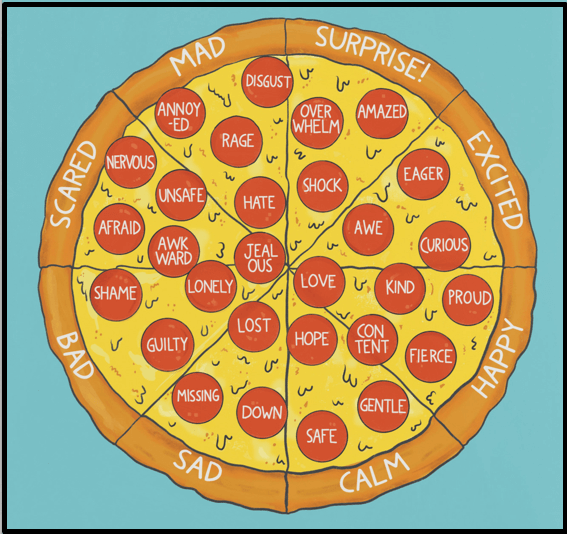
The kid will go and stand in the part wheel whenever they are experiencing emotions. Such as happiness, anger, sadness etc. The teacher will help him deal with the emotion. Moreover, you can provide them matching emojis that the child can silently hand over to their teachers. This creates a place for trust. Moreover, there will be fewer chances of outbursts when feeling misunderstood or wronged.
5. Whispering Sentence
This is a popular and fun game. It can help to enhance listening skills in your kids. Moreover, it can be played by kids of all age groups. You can ask other members of the family to join as well. After that, tell everyone to sit in a circle, close enough to whisper easily.
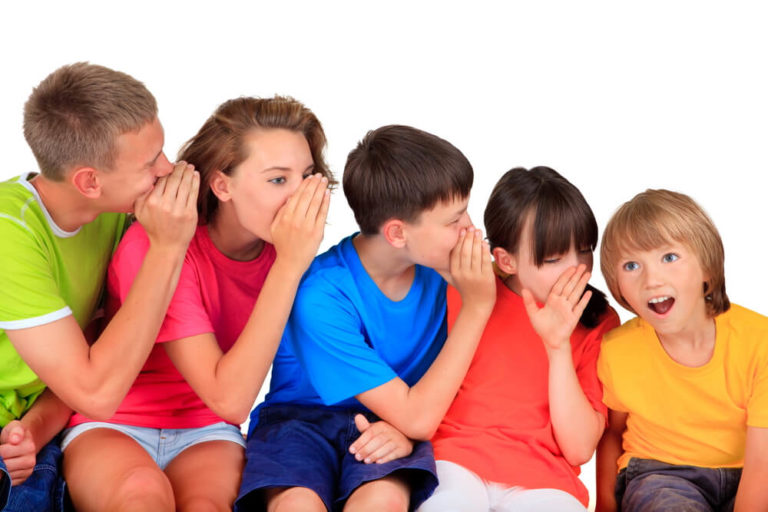
Start with one kid, who will whisper a sentence into the ear of another kid sitting to the right, who then whispers it into the next players’ ears. Go around the circle until everyone in the circle has taken a turn. In the end, the last kid says the message loudly.
Afterwards, the first person who gave first the message can reveal the actual sentence. It is most likely that the original message and the final message will differ a lot! It might turn into something hilarious. Initially, you can begin with a simple message and slowly shift to more complex sentences.
6. Trolley Challenge
This super fun activity keeps your children amused as well as develop their thinking capacity. This also helps them to increase the power of explaining things properly.

It will fine-tune their communication skills for kids as you go around the supermarket with them. In this game, every time you pick an item in your trolley, ask your kids to tell five things about it.
7. Picture-Telling
Storytelling is a great way to practice narrating and communication. Kids love to listen to stories. Reverse it this time. Now, it is their turn to say one. Picture storytelling is an interesting activity. In this activity, your children have to narrate a story based on the pictures you give them.
Select a variety of pictures for each kid. After that, give each a time limit of 5-10 minutes and ask them to make a story by seeing this picture.
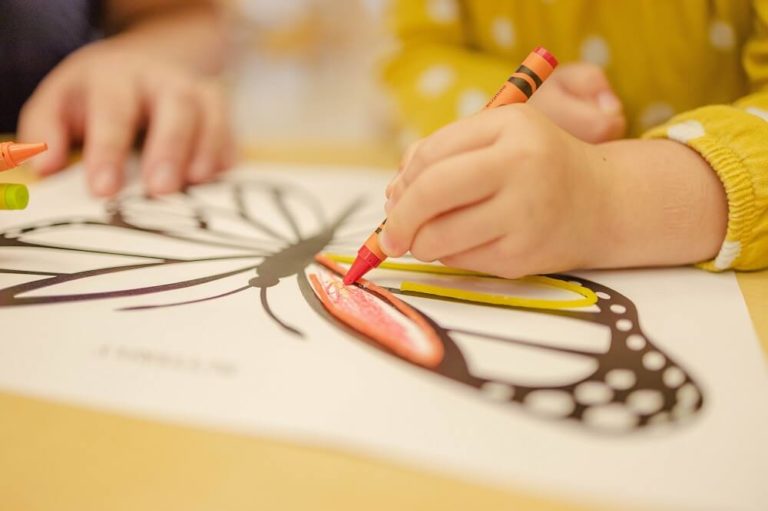
During this activity, they are processing visual cues. Also, it utilises their ability to think and speak in front of others. At the same time, the other participating kids get to practise their listening skills. Both are crucial communication skills to develop at this age.
8. Finish-the-Nursery-Rhyme
Children need to know certain nursery rhymes for this fun activity. So, ask kids to imagine and express alternative endings to these rhymes in a creative way.
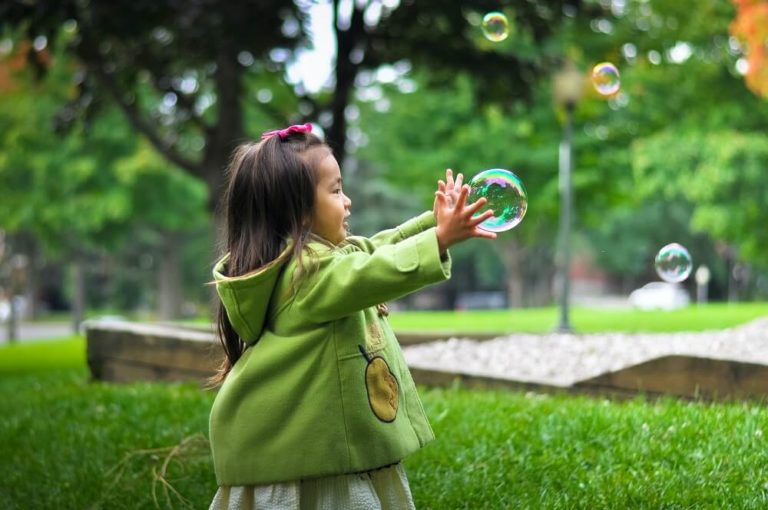
In this way, kids will develop their vocabulary and think more creatively. As a result, they will be more competent when communicating with others.
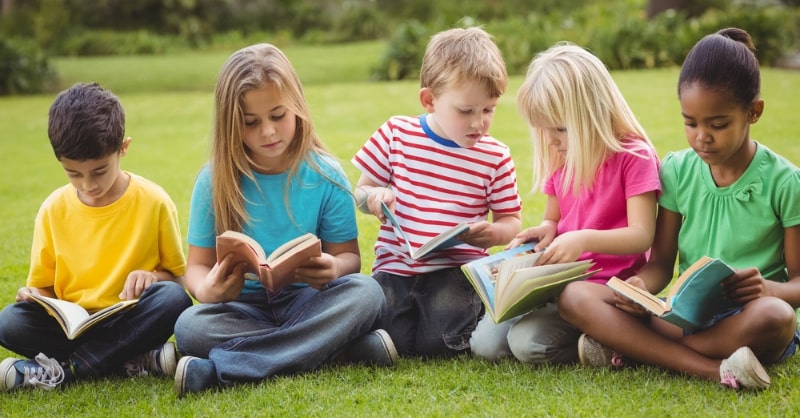

![]() 14 minutes
14 minutes


![]() 14 minutes
14 minutes